Why are tattoo artists completely booked up?
Lockdown might be over but for tattoo artists in London, the work is only just starting.
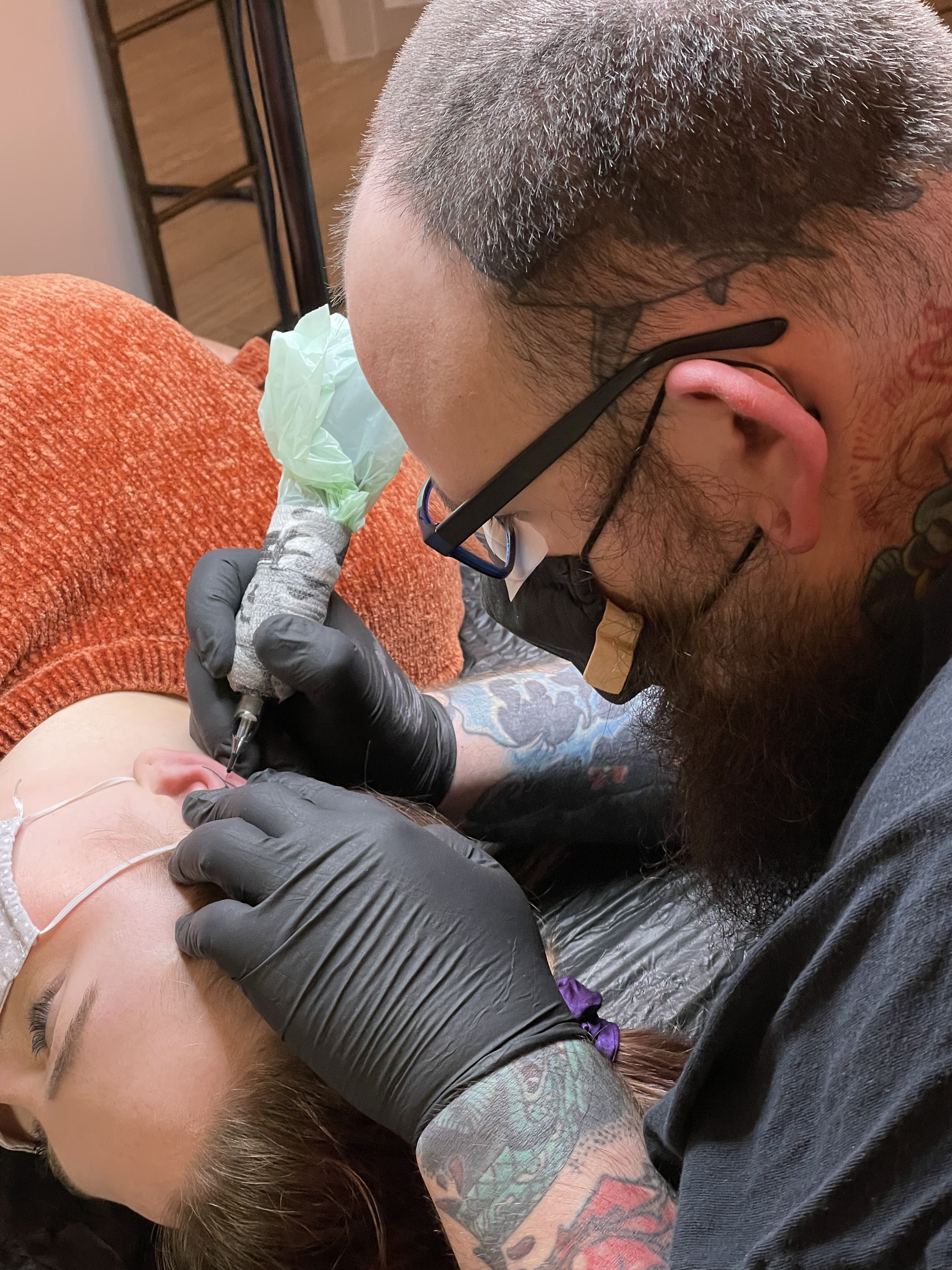
If you, like many other people, rushed out to get a tattoo after lockdown ended only to be met with closed books and lack of availability, you are not alone. The demand for tattoos has been rising for years and the pause during 2020 has compounded this rush to get inked.
One in three Americans has at least one tattoo, according to an Ispos study in 2019. This is compared to 21% in 2012. Tattoo artists have noted that the UK has been following a similar trajectory and although recent official numbers are not available, around 30% of 25 to 39-year-olds in 2015 had at least one tattoo.
It is common to see people in the public eye such as celebrities or athletes, with at least one visible tattoo. There are even articles documenting the variety of tattoos public figures, such as David Beckham or Ariana Grande, have. Having such high-profile people sporting multiple tattoos in prominent places like hands, arms, and legs, helps break the stigma that has long clouded the image of tattoos.
“In contemporary culture, it’s become much more visible, it’s become much more acceptable, it’s become much more open about being tattooed,” said Viren Swami, 41, professor of social psychology at Anglia Ruskin University.
Regardless of statistics, tattoo artists across London have found that the pandemic has impacted them more than they could have ever guessed.
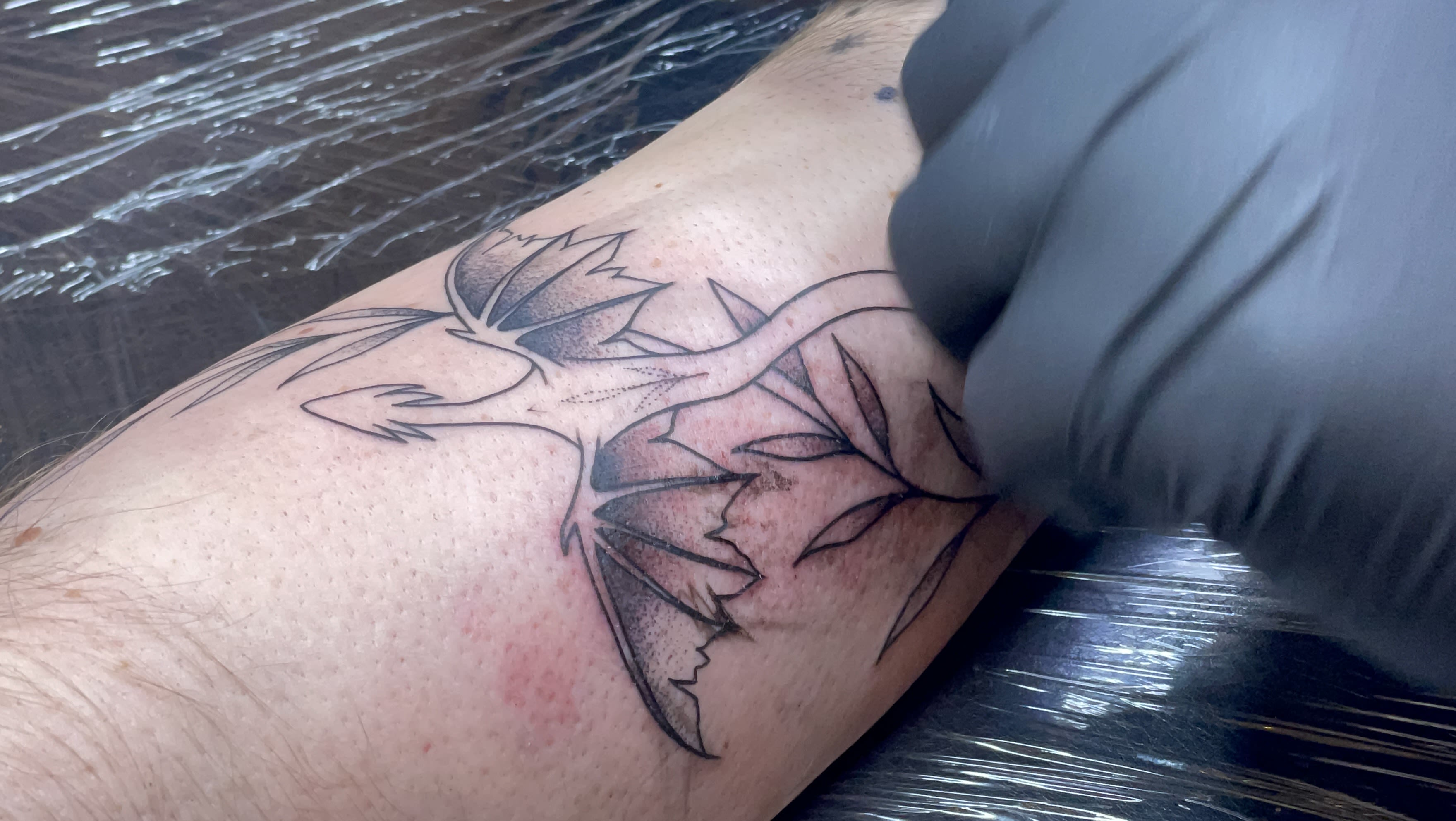
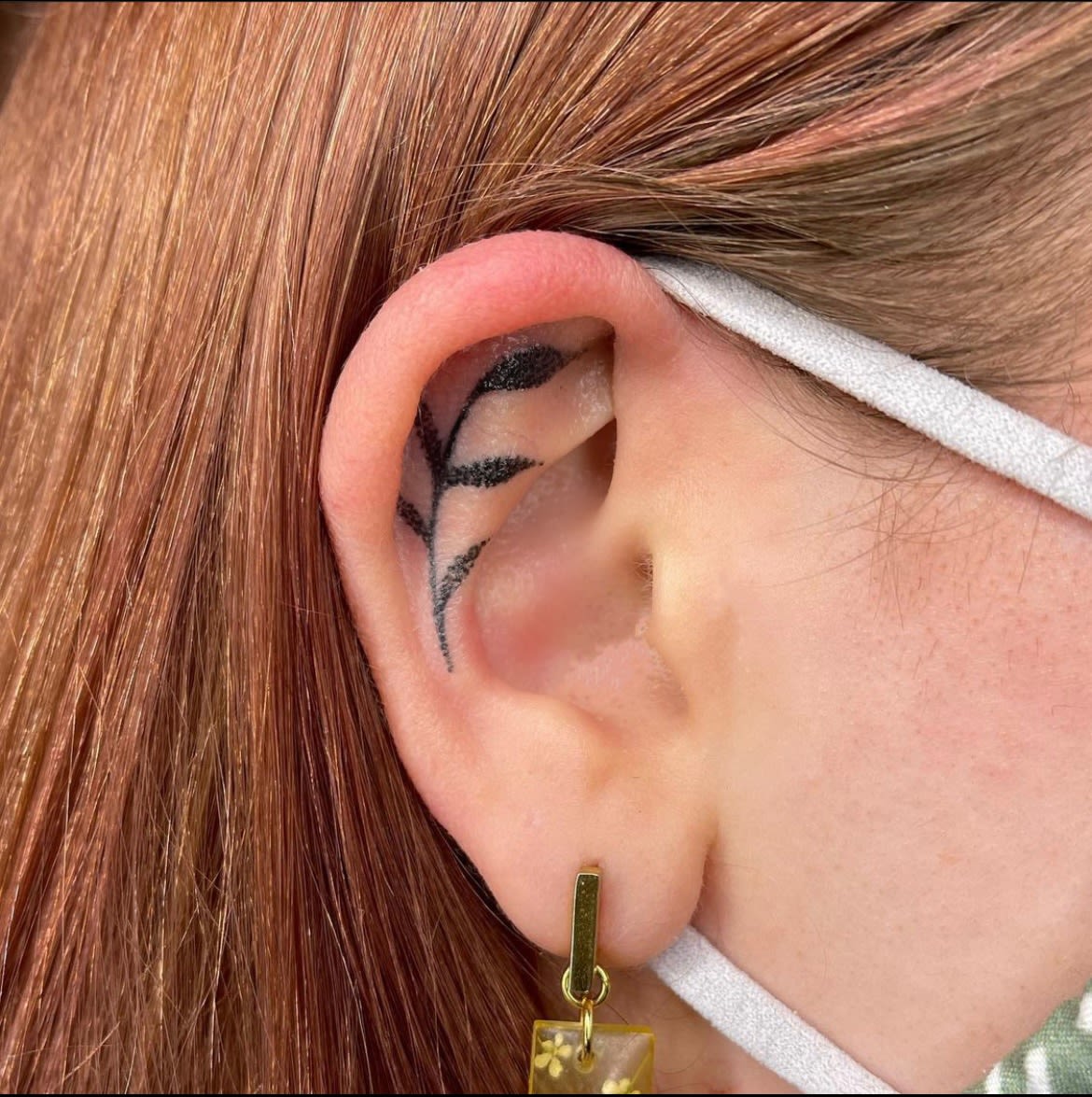
March 2020: When Covid hit
“The first couple of months were absolute torture,” said Chris Harvey, 31, tattoo artist and owner of Flora and Fauna Tattoos in London. This feeling was felt throughout the UK as many people were left in uncertain situations about their job prospects.
Rebecca Vincent, 37, an artist in Hackney, said: “I shit myself […] I panicked, I really panicked”. Tattoo artists are mostly self-employed, meaning if they are not tattooing then they are not earning any money. They could not rely on the furlough scheme either as that was only for salaried staff, instead, they had to wait for the government to set up support for the self-employed.
“The first couple of months were absolute torture.”
However, this scheme was not without problems as you had to prove three years' worth of earnings to access the funds. Rebecca believes that “it wasn’t as forthcoming as the furlough scheme. There was a lot of wait between payments.”
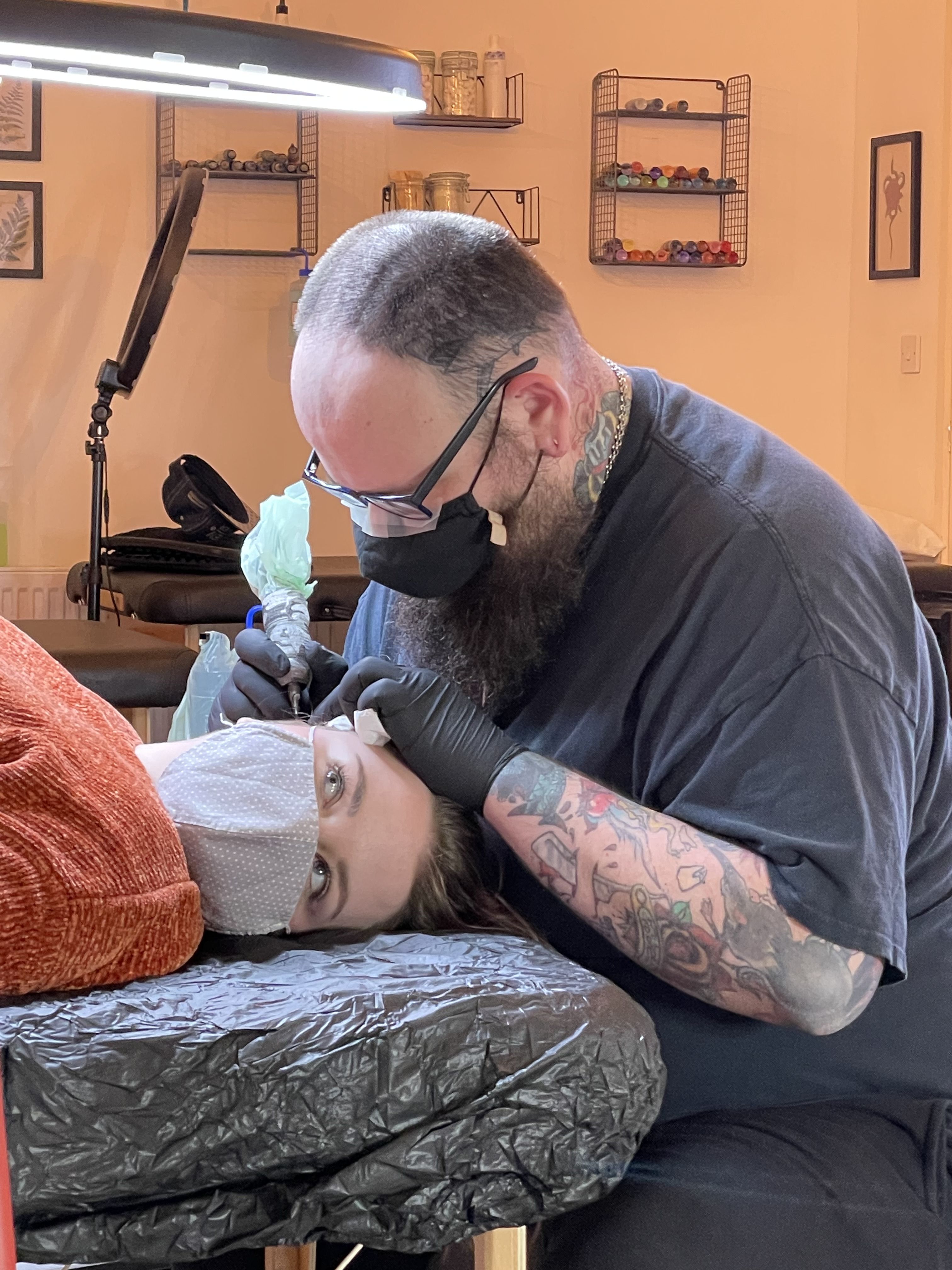
Chris Harvey, tattooing a customer
Chris Harvey, tattooing a customer
Artists like Chris were lucky as his partner was salaried so was given furlough. He’s thankful for the support and said: “Without that money, I wouldn’t have been able to pay my rent or survive.” Chris even used the time to grow as an artist and opened his own studio in Canning Town, Flora and Fauna Tattoos, when restrictions lifted.
Others such as Nick Horn, 39, of Storyville Tattoo in East Dulwich, found themselves using savings to survive and worrying about the future of their business. “The closure of our studio was very worrying at the beginning, given the nature of the pandemic we had concerns about whether or not we would ever be allowed to open again,” he said.
“Given the nature of the pandemic we had concerns about whether or not we would ever be allowed to open again.”
Like others across the country, some artists had to consider their health before lockdowns were imposed. Martha Smith, 34, was working in Hackney when the pandemic hit, and Covid had a major impact on her life and job.
She said: “I have a high-risk husband so I actually shut before government restrictions came in. I was able to keep my family safe mainly through savings although I did eventually receive government support to continue paying for my studio.”
With reduced income, many artists had to reconsider their life in London. Martha moved back home with her parents in Margate and has now set up a studio there. She worried it would be a “great financial upheaval” to try and move back to London now that her savings have gone and studio prices are high.
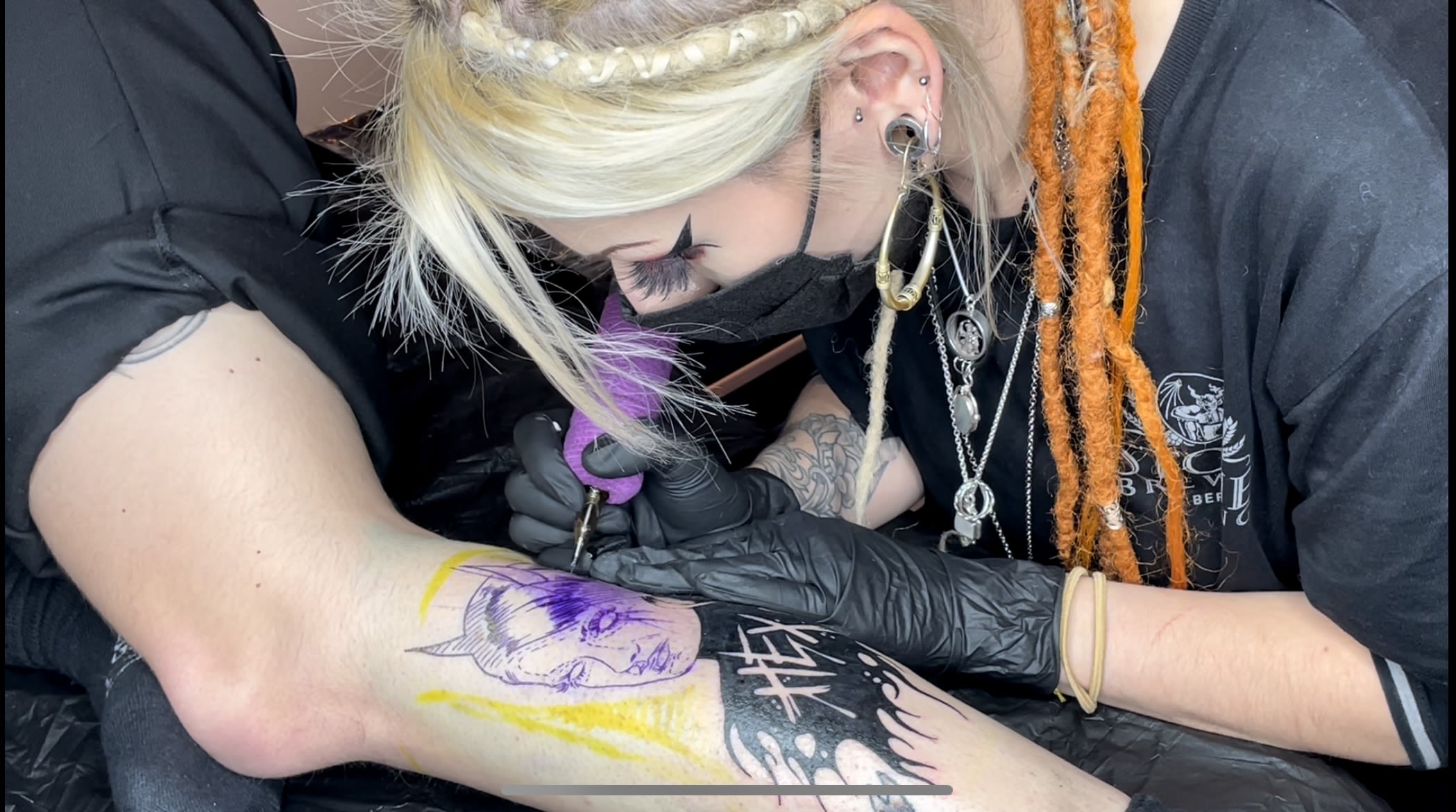
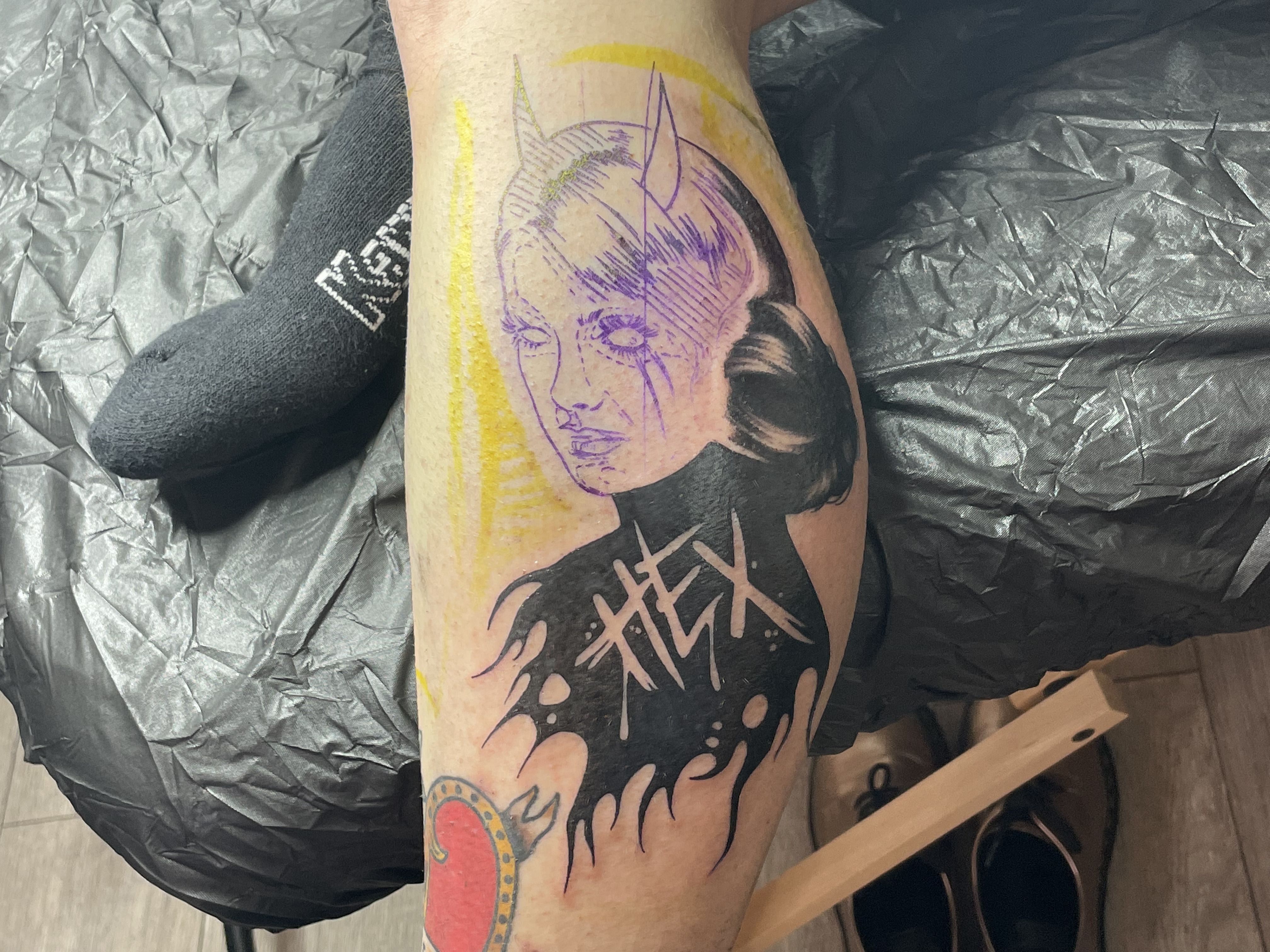
The return of tattooing
The reopening of businesses has also come with a multitude of problems. Equipment, such as gloves which were a crucial part of PPE, has skyrocketed in price during the pandemic, putting more financial pressure on the artists.
When they first opened back up many had to contend with bookings from before the lockdowns, Martha said: “I was booking six months in advance before this. This meant I had to cancel over 300 customers last March.”
Those who postponed appointments, instead found customers cancelling on them. “With the amount of people that have lost their jobs, had their contracts reduced or even put on furlough. There was like a massive influx of people who would be like “I just can't afford it”,” said Chris.
He added: “The people that booked in just before the pandemic kicked in went from having a solid income and a set future to complete unknown on how they're going to pay their rent next month.”
These gaps in artists' books were quickly filled as Chris found people were “chomping at the bit” to get inked.
However, Covid is still prevalent and tattooing is a close contact business. Chris found this out the hard way when he had to isolate over Christmas due to a client he had spent eight hours tattooing tested positive two days later. This was despite all the precautions of a mask during the session and the use of gloves and standard tattoo hygiene throughout.
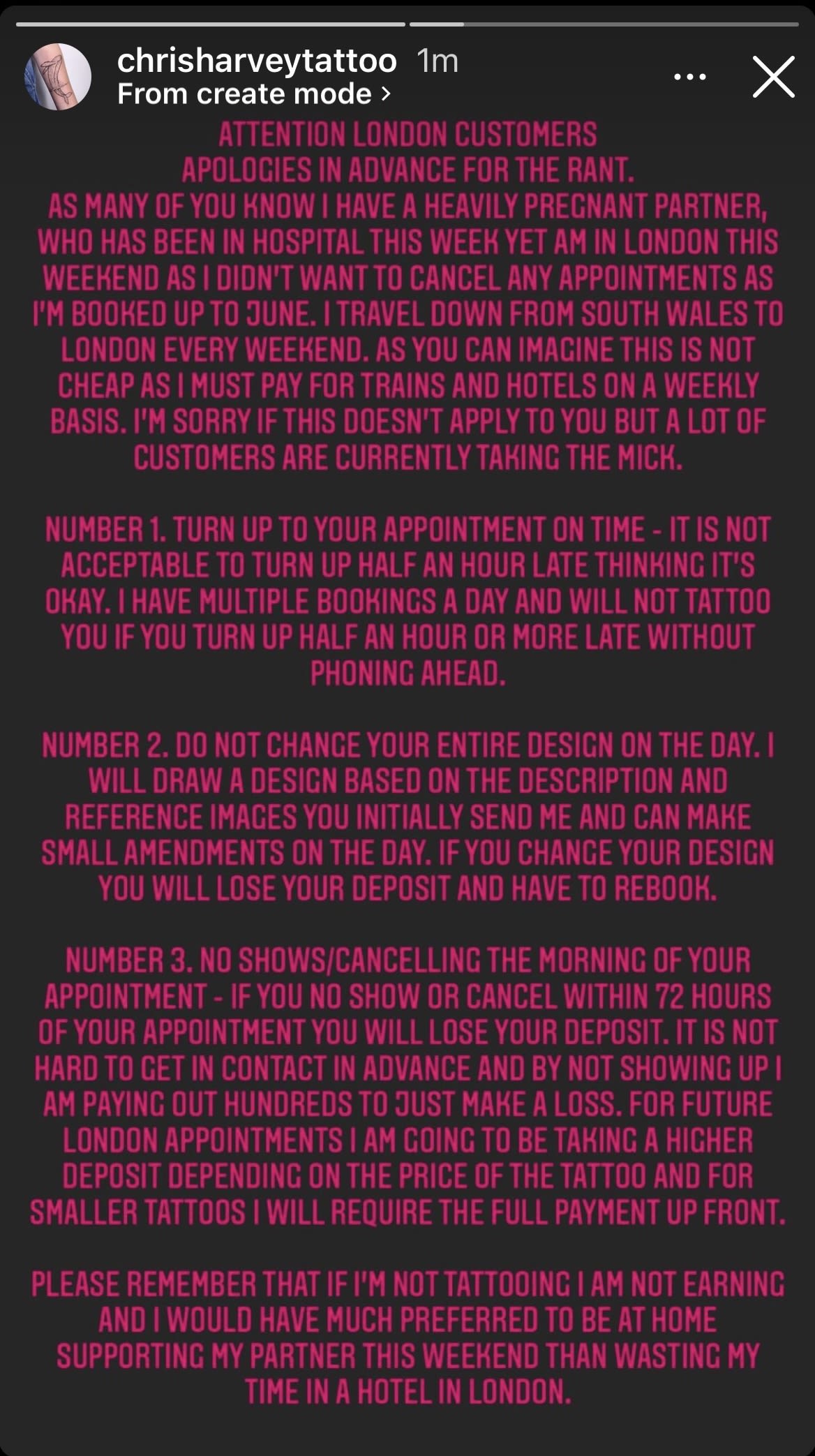
Chris's Instagram story
Chris's Instagram story
“Two or three out of every 10 customers [cancel] because of them testing positive or having symptoms,” he said. This, along with the fact his partner was high risk due to pregnancy, prompted him to request customers take lateral flow tests before coming into the studio.
Martha also asks customers to take lateral flow tests and wears a mask throughout. She said: “I have been very insistent that if customers feel ill they have to rearrange, it's meant lots of cancellations and juggling of the diary but it's the safest way to be.”
Juggling diaries is something all the artists discussed, most of them are fully booked until early next year. This is why it’s nearly impossible to book a tattoo right now, artists simply have no space other than cancellations.
Nick said: “We've got a backlog of clients who had appointments pre-lockdown as well as new clients that have been in touch to book.” Each artist has a different approach to managing this influx of demand.
Most close their books to indicate they are fully booked until a certain time. Nick, however, leaves his books open and it is possible to get an appointment “as long as someone is willing to wait a few months.”
“It is so busy in the tattoo industry right now. It’s like people have been waiting. Everyone I know is rammed, it’s crazy,” said Rebecca, whose books are currently closed and set to open in December to book for October 2022.
She fills gaps left by Covid with a cancellation list, as does Nick, while other artists like Chris take to Instagram to advertise spaces. Often these slots are flash only, flash refers to pre-drawn designs by the artist often displayed on their Instagram for people to claim.
In flash-only slots, you cannot ask for a custom design during them as the turnaround is too quick or the artist is too busy to design something for you.
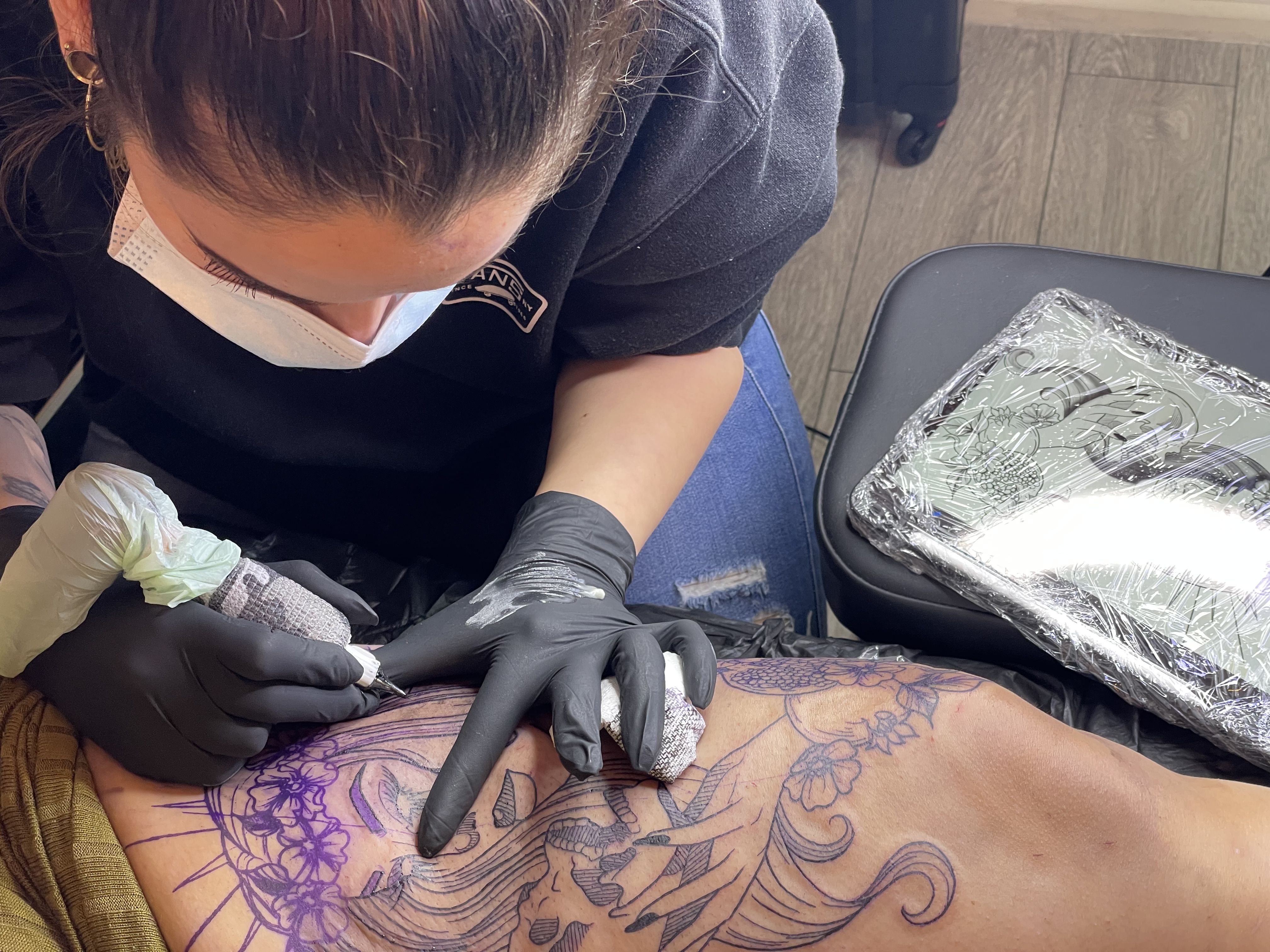
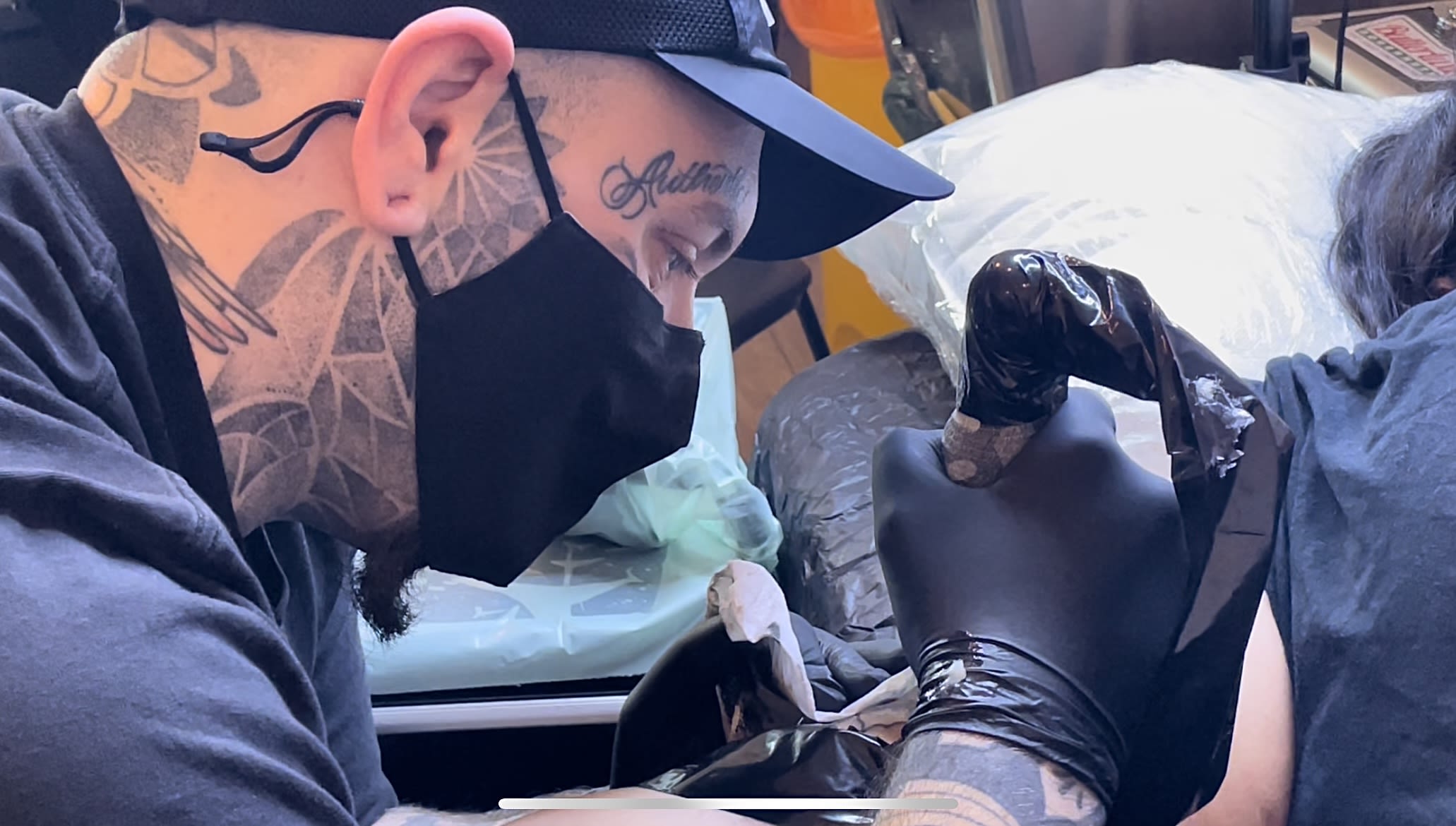
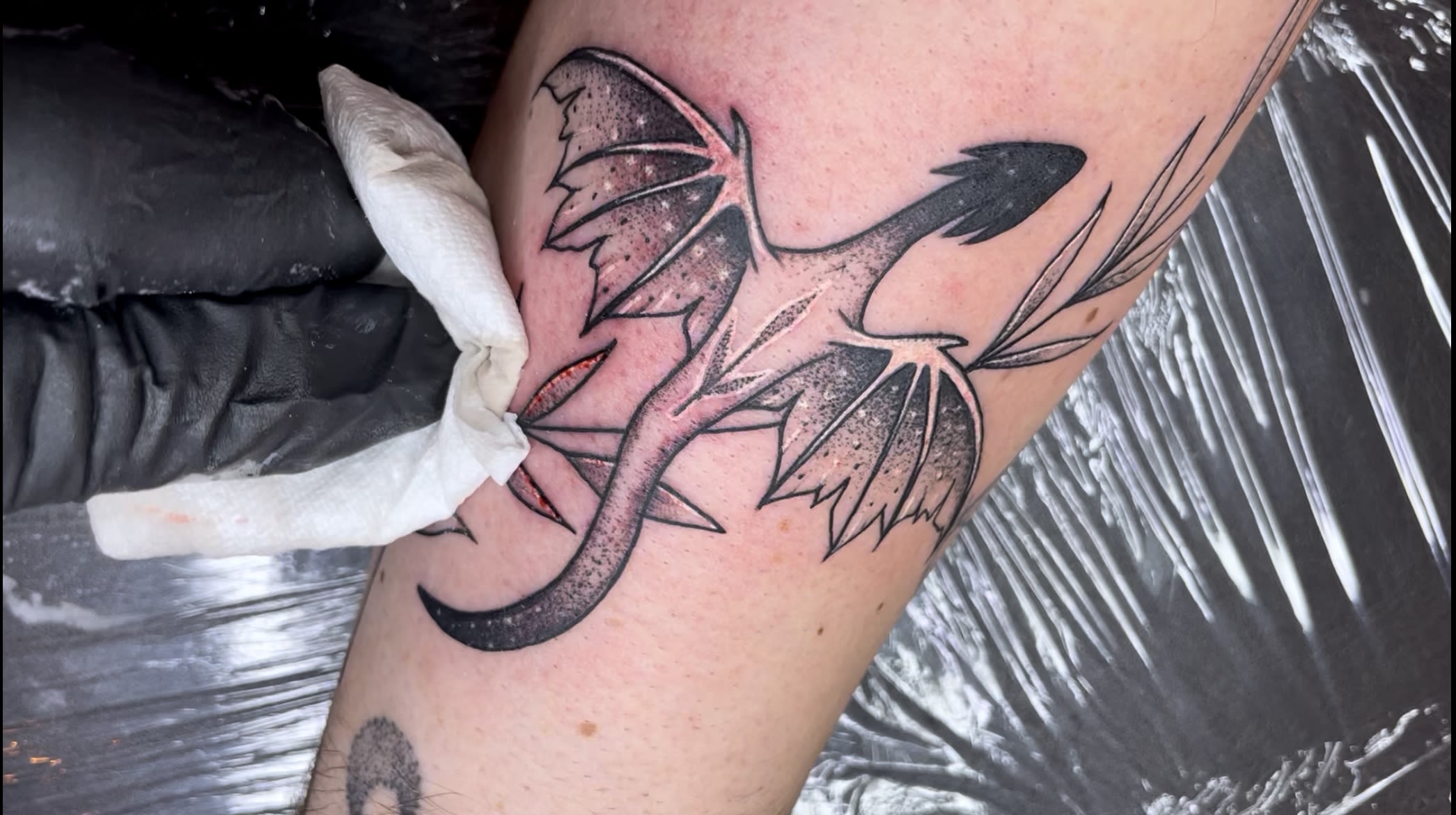
What about customers?
Careers and tattoos have long been a point of debate with advice often being to hide your tattoos when going for job interviews for fear of negative stereotypes. However, in 2019, Hrnews found that in some professions it might be preferential to have tattoos - 65% of people prefer fashion designers with tattoos.
But this positive response is dependent on your career path as under 10% of people prefer tattooed MPs or lawyers. A massive 75% and 63% of people said they would prefer MPs and lawyers, respectively, to be without a tattoo.
For customers, the system of opening books for six months or more in advance can be stressful as they may not be able to secure a session due to their chosen artist’s inbox being flooded once they open. Many keep an eye on Instagram and other social media to see if they can fill any cancellation slots.
Animator Billy Brooks, 23, had booked a tattoo before the pandemic but it was pushed back during the first lockdown and he is yet to reschedule it. He has however booked a tattoo with a different artist.
“I’ve known I wanted a tattoo by the artist for a while but was waiting for him to post a flash I was a fan of,” he said. They posted two similar designs and as Billy was debating booking in, one of them was taken by another customer. He immediately booked in so he did not miss out on a tattoo he had been waiting for.
This was slightly more impulsive than other customers such as 23-year-old Lauren Peters, a videographer, who had been considering a tattoo of the goddess Athena for over a year. She contacted a specific artist but their books were closed.
“I love that there’s a piece of art on my body.”
Lauren booked in with a different artist in the end but found their spaces were also limited. Plus living in Shropshire, booking in with a London artist was not easy. She said: “She only had evening appointments and that wasn’t practical for where I live.” Eventually, they settled on a weekend slot almost two months after the initial contact.
While Billy found in lockdown he was not considering tattoos as he had “other things on [his] mind," Lauren said: “I knew I would have to wait a long time,” even when studios opened up but this was something she was willing to do as she “love[s] that there’s a piece of art on [her] body.”
The artists themselves feel this demand, Rebecca said: “It’s like everyone during lockdown was like “I fucking need a tattoo!” And now it’s mental, it’s actually mental.”
Martha found that despite moving nearly two hours away from London her customers are still willing to travel to see her. “I’m incredibly lucky, my customers have been so supportive and loyal, even buying my artwork when i couldn't tattoo,” she said.
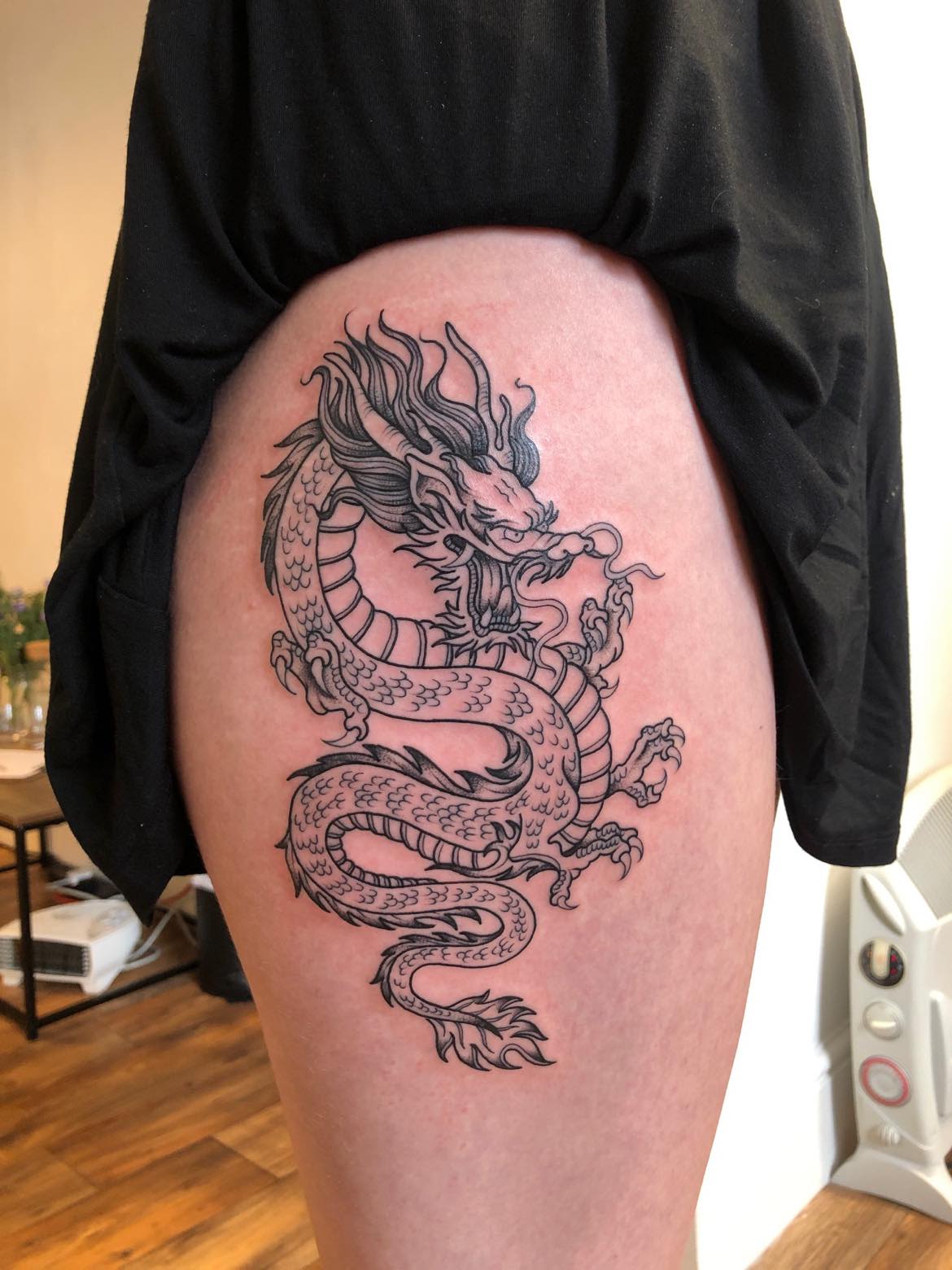
Lauren's tattoos, photo credit: Lauren Peters.
Lauren's tattoos, photo credit: Lauren Peters.
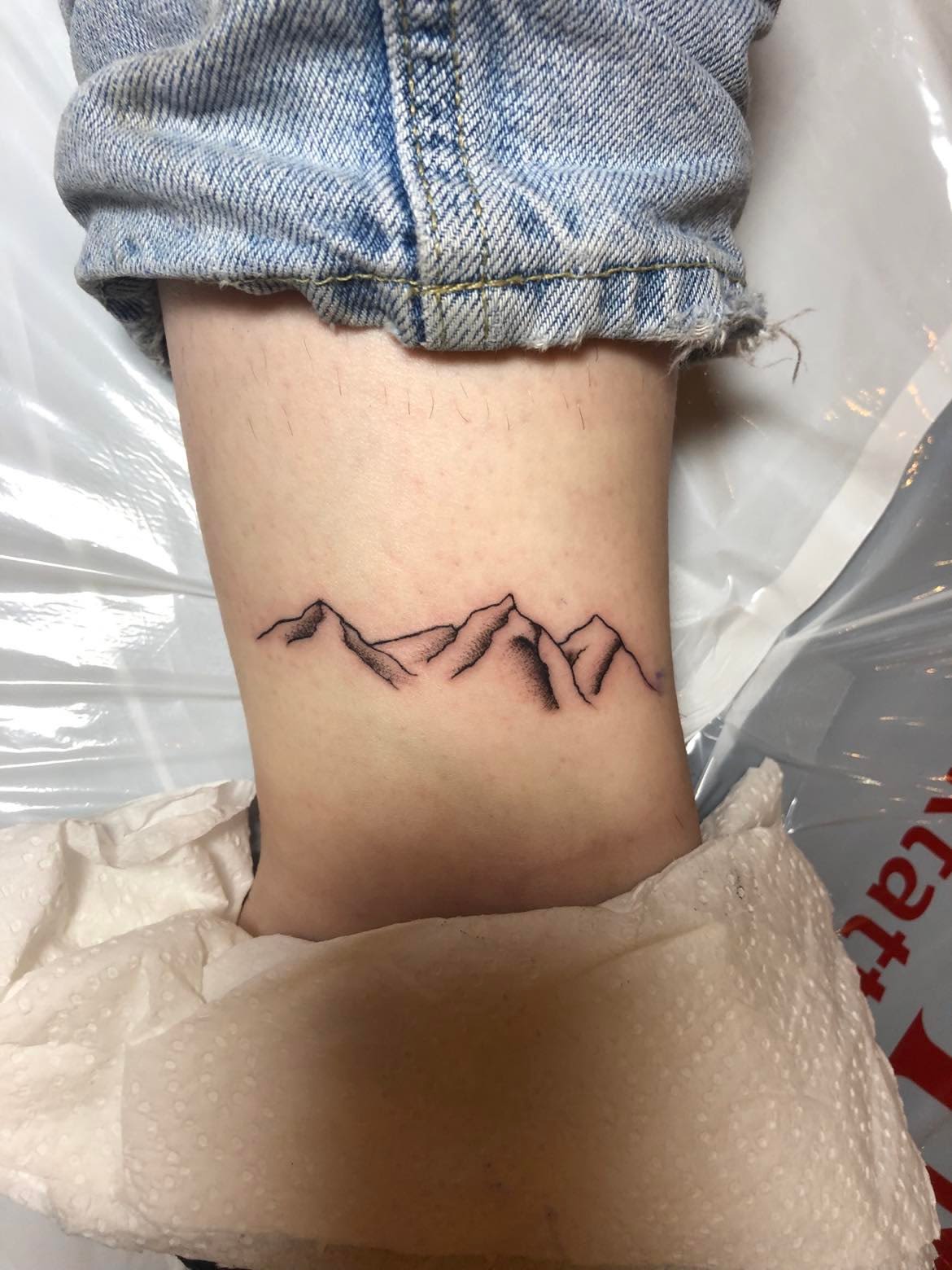
Lauren's tattoos, photo credit: Lauren Peters.
Lauren's tattoos, photo credit: Lauren Peters.
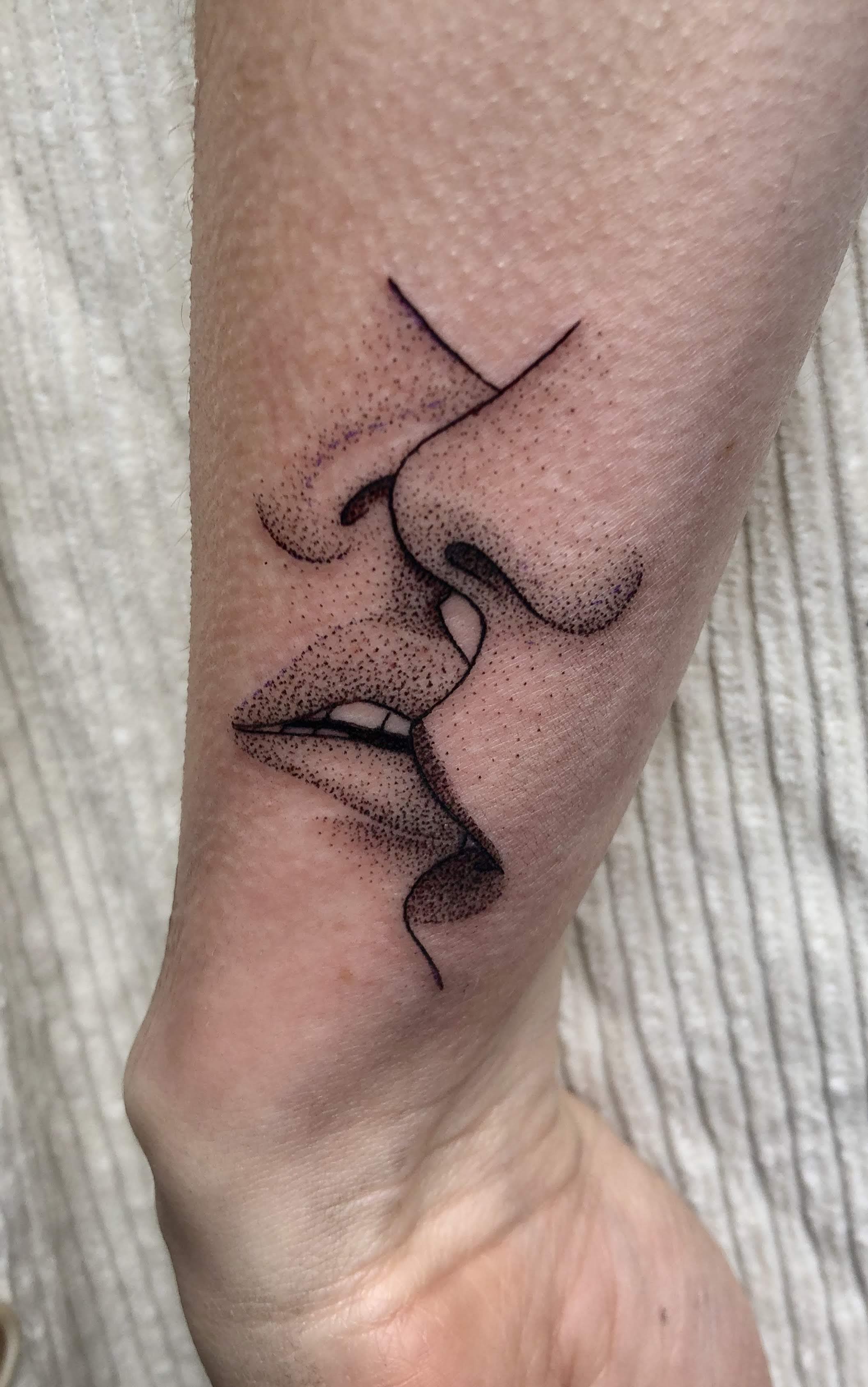
Martha Smith's artwork, photo credit: Martha Smith
Martha Smith's artwork, photo credit: Martha Smith
Looking to the future
If the past two years have taught us anything it’s that it is hard to predict the future and for some artists, this is concerning. Rebecca shared that she recently started taking antidepressants as her “anxiety was through the roof” due to the uncertainty of 2020.
Chris said: “I think getting the balance is hard and being overbooked is definitely equally stressful has been under-booked.” For him, this balance is even harder as he travels between his London studio and Park Tattoo in Swansea, where his pregnant partner is based. He was not concerned about how this will change his business though and spoke fondly of his tattoo apprentice, Abby, who helps keep the studio running.
For Martha, having safety measures in place and requiring people to adhere to regulations, such as one person in the studio at a time, helps her feel more relaxed. She thinks the future of tattooing is in private studios such as hers. “Having a private studio means you can control your environment, ensure a level of safety for your clients,” she said.
This attitude is mirrored by Nick who doesn’t see tattooing as an industry but rather an “amorphous collection of disparate elements that rarely - if ever - communicate or cross paths.” However, there is a network of artists, supporting each other and working together. Often, artists will guest spot at a studio or move between multiple studios on a regular basis.
The movement of kindness to others that was pushed during the pandemic is something Chris sees in tattoo artists. “There's like a kind of a new wave of tattoo artists who really opened the doors and are trying to make it a better place,” he said.
“Artists are an amorphous collection of disparate elements that rarely - if ever - communicate or cross paths.”
Chris added: “Everyone that comes here, I want them to feel safe and I want them to be happy.” This is not the seedy, underground subculture anymore, it is a mainstream and upmarket, luxury item. Chris fills his studio with light and plants, in keeping with his signature art style, to relax and comfort his customers.
An ideals-conscious tattoo studio is not uncommon as vegan ink is becoming more prominent in the industry - traditional ink uses glycerin which is made from animal fat. More often products are biodegradable and plant-based.
While Nick voiced concerns about the impact of the European Union on tattoos as there are calls for certain ink colours to be banned - “we might all be doing black tattoos in a few years!” Most of the artists are just hoping things calm down and return to a steady rate of bookings.
Rebecca concluded: “If there was another lockdown the government would have to help the self-employed again because people can’t afford to continue. We’ve spent our savings already.”
“I just want you to just feel like we're looking after you.”
With the industry booming and stricter regulations, hopefully, artists can clear their backlog and continue to grow.
Most artists are just grateful to be working again and, for now, it seems that the tattoo boom will continue to take off. But you might need to wait a little bit longer to get inked.
All pictures were taken by the author unless otherwise stated.
Artist: Chris Harvey
Artist: Jesse Roberts
Artist: Isabel Porcel
Artist: Hannah Green
